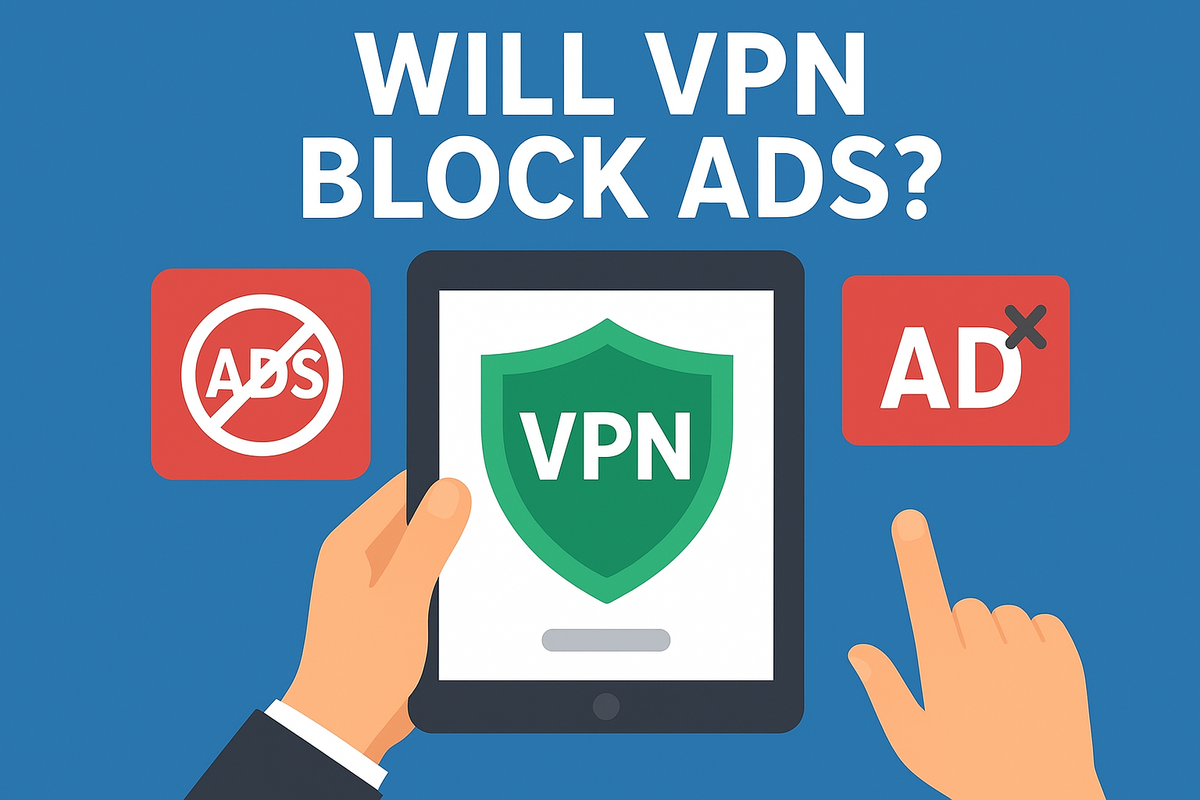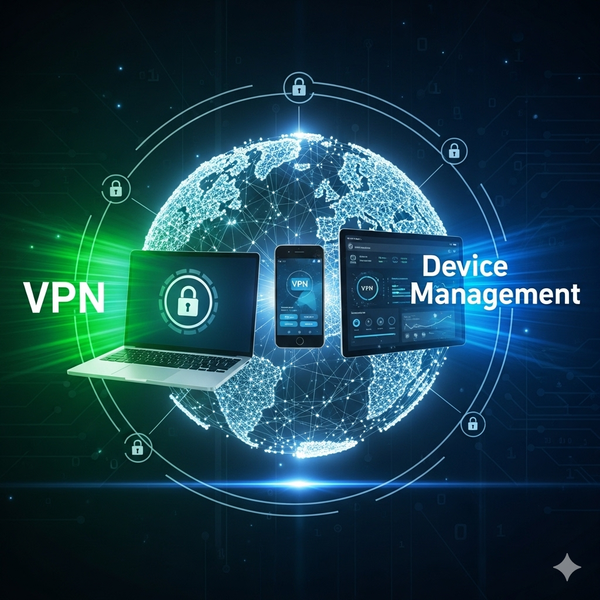Will VPN Block Ads? Everything You Need to Know About Ad-Free Browsing and Online Privacy

1. Introduction: The Role of VPNs in Modern Internet Use
In today’s digital world, internet users are constantly looking for ways to enhance their online experience while maintaining privacy and security. One of the most popular tools for achieving this is a Virtual Private Network, or VPN. VPNs have grown in popularity not only because they provide secure connections but also because many users hope to reduce unwanted online interruptions, like ads. This naturally leads to a common question: will vpn block ads?
A VPN works by creating an encrypted tunnel between your device and the internet. This means your online activity is hidden from hackers, ISPs, and sometimes even governments. While most people initially use VPNs for security, many also wonder if these tools can block annoying pop-ups, video ads, and banner advertisements that seem to follow you across websites. Understanding the answer to will vpn block ads requires a closer look at how VPNs function and how ad delivery works on the internet.
It’s worth noting that not all VPNs are created equal. Some VPN services include features specifically designed to block advertisements, trackers, and malicious websites, while others focus purely on privacy and data encryption. For instance, if you want a VPN that offers both privacy and the potential to limit ads, VPN Winston is a great choice. It provides three days of free access, protects your data, allows connection on up to five devices simultaneously, and even gives you access to websites that might be blocked in your region.
2. How VPNs Work: Security, Privacy, and Data Protection
To understand whether will vpn block ads, it’s essential to first grasp how a VPN works. At its core, a VPN acts as a secure intermediary between your device and the internet. When you connect to a VPN, your internet traffic is routed through an encrypted tunnel to a VPN server, masking your real IP address and making your online activity nearly invisible to outsiders.
This encryption protects sensitive information such as passwords, banking details, and personal data from hackers, ISPs, and even government surveillance. Because your IP is hidden, websites and advertisers have a harder time tracking your location and browsing habits. This is one reason why many users wonder if VPNs also block ads automatically.
Another important aspect is data protection. VPNs prevent data leaks on public Wi-Fi networks, which is a common place where cybercriminals exploit unsecured connections. They also protect multiple devices under a single subscription. For example, VPN Winston allows up to five devices to connect simultaneously, ensuring that your laptop, phone, tablet, and other devices are all protected. With this, you get both security and some reduction in personalized ads, all while enjoying access to sites that might otherwise be restricted in your region.
In short, understanding will vpn block ads requires knowing that VPNs are first about privacy and security. Blocking ads may be a bonus feature for certain services, but it’s not guaranteed unless the VPN explicitly provides it. Next, we will examine common myths and realities about VPNs and ad-blocking to clarify what users can realistically expect.
3. Will VPN Block Ads? Myths vs Reality
One of the most frequently asked questions among internet users is: will vpn block ads? The answer isn’t as simple as “yes” or “no.” While VPNs can offer some level of ad reduction, there are several myths and misconceptions surrounding this feature. Understanding these can help you make informed decisions about your online privacy and browsing experience.
Myth 1: All VPNs Block Ads Automatically
Many people assume that connecting to a VPN will instantly remove every ad from the websites they visit. In reality, most standard VPNs do not block ads by default. They are designed primarily to encrypt your connection and hide your IP address. Ads embedded in websites or apps will still appear unless the VPN has a dedicated ad-blocking feature.
Myth 2: VPNs Make You Completely Invisible to Advertisers
While VPNs hide your IP and location, advertisers have other ways to track users, such as cookies, browser fingerprinting, and behavioral tracking. Using a VPN alone does not guarantee a completely ad-free experience. However, it can significantly reduce personalized ads, which track you based on your location and browsing patterns.
Reality: Some VPNs Include Ad-Blocking Features
Certain premium VPN services go beyond basic privacy and include built-in ad-blockers. These VPNs can prevent pop-ups, banner ads, and even some video ads from loading, giving you a cleaner, faster browsing experience. If your goal is to answer will vpn block ads, selecting a VPN with these features is essential.
4. Types of VPNs and Their Ad-Blocking Capabilities
When considering whether will vpn block ads, it’s important to understand that not all VPNs are created equal. VPN services vary widely in terms of features, speed, security, and ad-blocking capabilities. Knowing the differences can help you choose the right VPN for an ad-reduced and secure browsing experience.
1. Free VPNs
Free VPNs are attractive because they don’t cost anything upfront. However, they often come with limitations such as slower speeds, fewer server locations, and weaker encryption. Most free VPNs do not include ad-blocking features, and some may even display ads themselves to generate revenue. If you rely solely on a free VPN, the answer to will vpn block ads is usually no.
2. Paid VPNs
Paid VPNs generally offer better performance, stronger encryption, and additional features, including built-in ad blockers. Some premium VPNs can block malicious ads, trackers, and pop-ups while providing reliable access to restricted content. For instance, VPN Winston is a premium option that allows connection on up to five devices simultaneously, provides three days of free access, and ensures both privacy and some ad management.
3. VPNs with Built-in Ad Blockers
Certain VPNs are specifically designed with ad-blocking in mind. These services not only encrypt your traffic but also filter out advertisements and tracking scripts at the network level. This can improve your browsing speed and enhance your overall online experience. Using such a VPN is the most effective way to answer will vpn block ads positively.
4. Split-Tunneling and Customizable VPNs
Some advanced VPNs allow you to customize which apps or websites go through the VPN. This can indirectly help with ad-blocking by routing only certain traffic through servers that filter ads. It’s a more technical solution but gives users flexibility and control over how ads are handled.
5. VPNs for Multi-Device Protection
An often-overlooked factor is the ability to secure multiple devices. VPNs like VPN Winston allow up to five devices on a single subscription. This means laptops, tablets, and phones all benefit from encrypted traffic, limited targeted ads, and safer access to restricted websites.
5. Benefits of Using a VPN Beyond Ad Blocking
While many users are curious about will vpn block ads, the advantages of using a VPN extend far beyond ad management. Understanding these benefits can help you see why a VPN is an essential tool for modern internet use.
1. Access to Restricted Websites
One of the most significant advantages of using a VPN is the ability to bypass geo-restrictions and access websites that may be blocked in your region. Whether it’s streaming services, news sites, or social media platforms, a VPN allows you to browse freely. Services like VPN Winston make this particularly easy, giving users access to previously restricted content while maintaining privacy and security.
2. Protection of Personal Data
VPNs encrypt your internet traffic, preventing hackers, ISPs, and other third parties from intercepting sensitive information. This is especially important on public Wi-Fi networks, where cybercriminals often attempt to steal login credentials or personal data. Using a VPN ensures your data remains private and secure, regardless of your location.
3. Multi-Device Support
Many VPN services now offer the ability to secure multiple devices under a single subscription. For example, VPN Winston supports up to five devices simultaneously. This means your smartphone, tablet, laptop, and even smart TVs can be protected without purchasing separate subscriptions.
6. Tips for Maximizing Ad-Free Browsing with a VPN
Even though a VPN can provide some reduction in ads and enhance privacy, many users still ask: will vpn block ads completely? While the answer depends on the VPN and its features, there are several practical strategies to maximize ad-free browsing while using a VPN.
1. Choose a VPN with Built-in Ad-Blocking
Some VPNs come with integrated ad-blocking features that prevent pop-ups, banner ads, and tracking scripts from loading. If your main goal is to reduce online ads, selecting a service like VPN Winston can make a big difference. It not only protects your data and allows access to restricted websites, but also helps minimize unwanted ads across multiple devices.
2. Combine VPN with Browser-Based Ad Blockers
While VPNs can reduce targeted ads, they may not eliminate all content ads. Pairing your VPN with browser extensions or standalone ad-blockers can create a more comprehensive ad-free experience. This combination ensures both privacy and effective ad management.
3. Use Secure and Updated Browsers
Modern browsers often include built-in security features and tracking protection. Using these alongside a VPN can prevent many ads from loading while maintaining fast browsing speeds. Regular updates also ensure your browser is optimized for security and ad-blocking.
4. Enable HTTPS Everywhere
Many ads and trackers operate over unsecured connections. Using HTTPS connections wherever possible ensures encrypted data transfer, which complements the VPN’s privacy protections and reduces exposure to certain types of online ads.
5. Leverage Multi-Device Connections
Using a VPN across multiple devices amplifies its benefits. With services like VPN Winston, you can protect laptops, smartphones, and tablets simultaneously. This not only secures your data but also reduces targeted advertising on all your devices at once.
7. Conclusion: Is VPN the Ultimate Solution for Ads?
After exploring the question will vpn block ads, it’s clear that the answer is not black and white. While VPNs primarily focus on privacy, security, and unrestricted access to the internet, they can also help reduce some types of ads, especially personalized or geo-targeted ones. However, standard VPNs may not block all advertisements unless they include specific ad-blocking features.
The reality is that a VPN alone is often not enough for a completely ad-free browsing experience. To maximize ad reduction, it is best to combine a VPN with browser-based ad-blockers, updated security settings, and safe browsing habits. Nonetheless, VPNs provide an essential foundation for privacy and data protection, which indirectly improves your online experience by reducing targeted advertising and shielding you from malicious ads.
Choosing the right VPN can make a substantial difference. Premium services, such as VPN Winston, go beyond simple encryption. With VPN Winston, you get:
· Three days of free access to test all features.
· Support for up to five devices under a single subscription.
· Access to blocked websites, giving you full freedom to browse the web.
· Data protection, ensuring that your personal information remains secure.
By using a VPN like VPN Winston alongside ad-blocking strategies, you achieve the best of both worlds: enhanced privacy, reduced ads, and unrestricted internet access.
In conclusion, while a VPN may not block every ad, it significantly enhances your browsing experience and provides tools to manage unwanted content. Understanding how VPNs work, selecting the right service, and combining it with smart browsing techniques ensures that you stay safe, enjoy faster browsing, and answer the question will vpn block ads with confidence.
A VPN is more than just an ad-blocking tool—it’s a gateway to safer, freer, and more enjoyable internet use.


